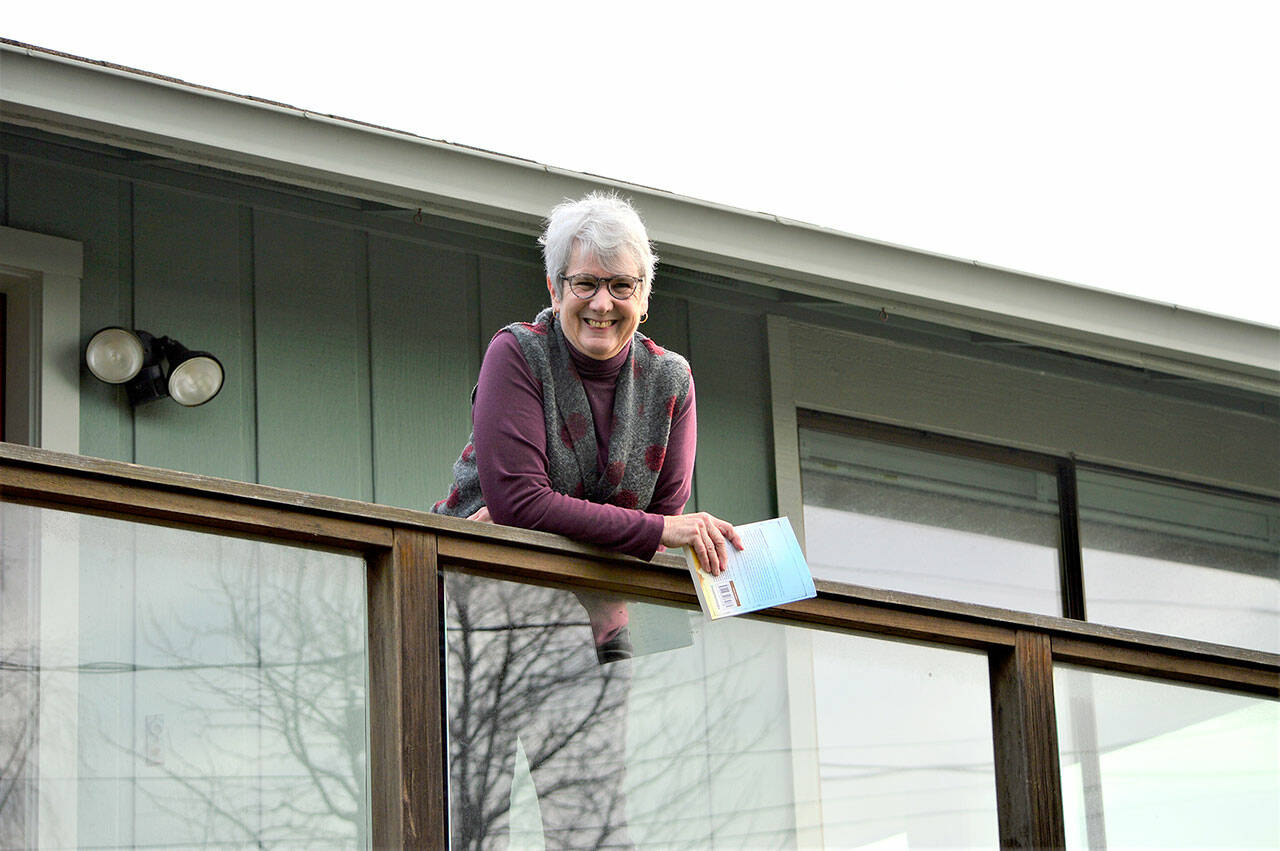PORT TOWNSEND — One rainy night, Lizbeth is having a glass of wine at home. She lives on the Olympic Peninsula in a town off state Highway 20, and her husband Dan is out late. He told her he had a meeting in Port Angeles.
She’s watching “CSI: Miami” when the doorbell rings. It’s a police officer. Dan has been killed in a wreck on that rural highway.
So begins “Exiled South,” Port Townsend author Harriet Cannon’s debut novel. The story that unfolds following the tragedy is one of a woman who first leans on a beloved cousin for support and then, through exploration of her family history, restarts her life.
Cannon, who moved to the North Olympic Peninsula six years ago after some three decades in Seattle, has much in common with her “Exiled” heroine. Both women have deep roots in South Carolina, and both went to live for a time in South America: Cannon in Chile and Lizbeth in Brazil.
This novel, released last week on Koehler Books, follows Lizbeth as she returns to her family’s beach house on Folly Island, S.C., where she begins to learn more about her mixed background. Her ancestors’ experiences during the Civil War were complicated.
A school counselor by profession, Lizbeth gets a six-month job in Brazil, and is glad for the adventure. Working in Rio de Janeiro, she learns about the Confederados, Southerners who immigrated to South America instead of remaining in cities such as Charleston, S.C., after the Civil War.
Lizbeth, who is white, dives into research about her forebears. She finds out about her Black family members — who lived in Brazil, then relocated to the American South where they faced hostility from their white kin.
The ending of “Exiled South” acknowledges the pain suffered by Lizbeth and by her family — Black, white and mixed. It hints, just barely, at the possibility of reconciliation, generations later.
“I wanted to make it real. This is not the made-for-Netflix world,” Cannon said in an interview Friday.
She grew up in a family with diverse worldviews. There were some very different stories told in various households, and there were sets of grandparents that didn’t speak to each other.
As an adult, Cannon followed her wanderlust and her curiosity about history on the personal and global scale. She’s lived in several U.S. cities, consulted for the Boeing Co. and worked for the U.S. State Department in Chile.
During her girlhood summers in South Carolina, Cannon heard vivid family stories from her grandmother, who lived to be 101. This grandmother was the descendant of a woman who experienced the battle of Charleston, S.C., in 1863.
“When I got to be an adult, I started looking deeper,” into the tales passed down from the women in her family.
“It was always in the back of my head to write a different story,” she said.
Cannon is a psychotherapist, now retired from practice. She coauthored a self-help book about her specialty: “Mixed Blessings: A Guide to Multicultural and Multiethnic Relationships,” with Rhoda Berlin in 2013. Writing that nonfiction work was a collaborative effort, Cannon said, while “Exiled South” was a relatively solitary one.
That’s not to say she didn’t have a good time writing it. Inventing the characters and story was “a blast,” she said. There were also challenges: Cannon is dyslexic.
“Never in my wildest dreams could I have become a writer without a community of supporters who believed in me,” she writes in the acknowledgments at the back of “Exiled South.” She thanks her “deep reading writer friends” along with her editor, her publisher and her husband, Charlie Cannon.
The author’s hope for her novel is that it will reflect the struggles of people who lived through the Civil War, who left the South for a foreign country in another hemisphere, and who found no welcome when they returned to the home of their parents and grandparents.
If the book has a message, it’s that you never know what someone has gone through — or what their family has endured. It’s about “not making assumptions about people based on appearances, or where someone is from, or what their last name is,” Cannon said.
“Exiled” is also an antiwar book, she added. War has caused too many tragedies on all sides.
“This [book] was something of the heart,” Cannon said. Now, she’s working on her next novel.
________
Jefferson County senior reporter Diane Urbani de la Paz can be reached at 360-417-3509 or durbanidelapaz@peninsula dailynews.com.

